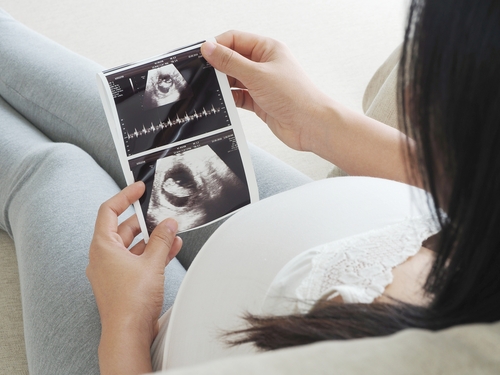UK Experts Propose New Guidelines to Treat Women with MS Before, During, After Pregnancy

Multiple sclerosis (MS) experts in the United Kingdom have proposed consensus guidelines for the management and treatment of pregnant women with the disease, and couples affected by MS who are planning a pregnancy.
The new guidelines are expected to reduce uncertainty about treatments that are considered to be safe and appropriate for this particular MS population.
The guidelines were published in the journal Practical Neurology, in an article titled “UK consensus on pregnancy in multiple sclerosis: ‘Association of British Neurologists’ guidelines.”
The proposed guidelines have been endorsed by the Association of British Neurologists, and have been reviewed by a panel of MS specialist nurses, neurologists, obstetricians, midwives, and MS patients.
“We hope that the publication of these guidelines will enable health professionals to provide more informed guidance, support and care to people with MS when they are planning a family as well as during pregnancy and the post-natal period,” Megan Roberts, health professionals program manager at MS Trust, said in a press release.
In the past few years, several new therapeutic strategies have become available to manage MS. However, there is little information about the safety of new disease-modifying therapies (DMTs) in pregnancy. This has led many women affected by MS to delay beginning treatment until after they had completed their families, which may significantly increase the chances of a poorer outcome.
“There are increasing data that delaying starting disease-modifying drugs and/or routinely stopping all disease-modifying drugs pre-pregnancy or immediately post-conception is associated with increased relapse rate during pregnancy,” researchers wrote. “This can have significant negative effects on long-term disability in women with MS.”
“The overwhelming majority of medications used in MS are [U.S. Food and Drug Administration (FDA)] category C for use in pregnancy,” meaning that the associated risk has not been ruled out based on the available information from clinical studies. “An exception is Copaxone [glatiramer acetate, marketed by Teva Pharmaceutical], which is FDA category B — either no risk in animal studies or no risk demonstrated in controlled studies in pregnant women,” researchers wrote.
Now, a panel of experts from a variety of disciplines reviewed the clinical evidence available from drug-specific pregnancy registers and published literature to establish new care and management guidelines that could help clinicians and families discuss this important matter.
They covered general pre-pregnancy counselling, management during pregnancy, delivery and anesthetic options, and postpartum advice.
The panel also provided some treatment specific guidelines regarding the use of currently approved DMTs, including Tysabri (natalizumab, by Biogen), Gilenya (fingolimod, by Novartis), Tecfidera (dimethyl fumarate, by Biogen), Aubagio (teriflunomide, by Sanofi Genzyme), Ocrevus (ocrelizumab, by Genentech), Lemtrada (alemtuzumab, by Sanofi Genzyme), and Leustatin/Mavenclad (cladribine, by Janssen).
In general, the panel of experts suggest that first-line injectable MS treatments, such as Copaxone and beta interferon formulations, can be safely used during pregnancy.
In contrast, continuation of treatment with Tysabri should be carefully thought through, as previous reports have suggested a significant risk of disease reactivation or rebound after stopping treatment.
Pregnancy should not be recommended for four and six months following treatment with Lemtrada and Leustatin/Mavenclad. However, after this time there are no contraindications.
The team also suggests that couples should not try to conceive for 12 months after receiving Ocrevus. Also, treatment with Aubagio is contraindicated in pregnancy, and Tecfidera and Gilenya should be avoided when possible.
“Having MS does not automatically make pregnancy high risk and should not in itself limit birthing options,” the team wrote.
Nonetheless, more studies are needed to provide additional insights about the use of MS therapies in all women of childbearing age.






